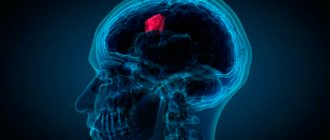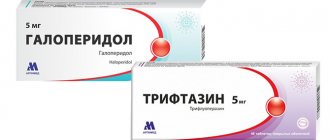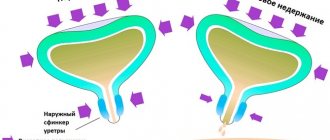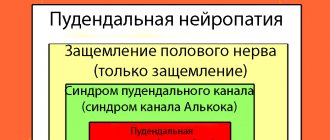Postpartum psychosis is a fairly rare mental disorder. The condition is also sometimes called postpartum onset bipolar disorder. This condition usually develops suddenly some time after childbirth (most often the disease makes itself felt in the first month after the birth of the child).
This type of psychosis can be stopped fairly quickly if the woman does not ignore the pathological symptoms and seeks help from a doctor so that he can prescribe appropriate treatment.
Postpartum psychoses most often occur in women whose pregnancy proceeded with pathologies, after complicated childbirth, as well as after the birth of a stillbirth or miscarriage. According to statistics, the described mental disorder occurs in one or two women in labor out of a thousand.
Interestingly, in women suffering from psychosis after childbirth, no signs were found during pregnancy that would suggest the occurrence of such a severe psychotic state in the future. It is worth noting that qualified assistance for postpartum psychosis is not always provided to women on time. The fact is that some patients themselves do not realize their pathological condition and attribute everything to ordinary fatigue. In this case, it is important that family and friends are able to recognize the signs of a serious illness.
Provoking factors
It is widely believed that postpartum psychosis is a consequence of hormonal changes and vegetative shifts that inevitably occur in a woman’s body during pregnancy and childbirth. In addition, labor is associated with severe physical stress, which can also lead to illness. However, scientists have found that there are other reasons that can provoke a mental disorder, including hereditary ones. Thus, many patients with postpartum psychosis had close relatives with a similar diagnosis. It was also found that various psychological and social factors have virtually no effect on the mechanism of development of mental disorders, although, according to some experts, women whose families have an unfavorable environment should also be included in the risk group.
The risk of developing a psychotic disorder after childbirth almost doubles in those women who have previously been diagnosed with schizophrenia or bipolar disorder, as well as other mental illnesses and traumatic brain injuries. Also at risk are patients who have already experienced postpartum psychosis. In other cases, statistics show that the disease is more often diagnosed in primiparous women. The personal qualities of patients can also be considered as an indirect cause of the disorder, since the described mental illness is more often found in overly suspicious young mothers or women in labor who are not mentally prepared to join the family. Drug dependence is also a risk factor for the development of postpartum psychosis.
Treatment of postpartum psychosis
The described condition will not go away on its own; you need to see a doctor as soon as possible. Contact a psychiatrist for a solution to the problem of how to get out of postpartum psychosis. After studying the symptoms, the doctor will prescribe medication using drugs from the following groups:
- antipsychotics (Aminazine, Triftazin, Haloperidol) - eliminate delirium, relieve hallucinatory phenomena, movement disorders associated with psychopathological syndrome;
- antidepressants (Fluoxetine, Amitriptyline) - reduce depression (apathy, anxiety, melancholy) by regulating the level of dopamine, serotonin and norepinephrine, which are neurotransmitters;
- mood stabilizers (Carbamazepine, sodium valproate) - eliminate mood swings in people with affective disorders, including bipolar, schizoaffective, and major depressive.
In parallel, it is necessary to treat concomitant conditions (infectious pathologies or complications, somatic diseases) that worsen the course of the disorder. It is necessary to provide the young mother with a comfortable psychological atmosphere in the family.
Clinical picture
Postpartum psychosis always develops suddenly, and its first symptoms can appear just a couple of days after birth. If therapy is not started during this period, the disease will progress and lead to disturbances in the woman’s higher nervous activity. Manifestations of pathology are always individual; it can occur in mild or severe forms with a fairly diverse clinical picture. In some cases, the condition of patients is so bad that they cannot care for themselves or the child.
There are key symptoms that can help you guess that a loved one is sick:
- manifestations of mania: excitement, good mood, euphoria, hyperactivity, anxiety, irritability;
- frequent mood changes;
- depression and melancholy, causeless tears;
- auditory and visual hallucinations;
- various misconceptions, including those concerning the child. For example, a patient may believe that her child harbors some kind of evil within himself or, conversely, is unique, a messenger of God, etc.;
- irrational thinking, inability to concentrate;
- incoherent speech;
- appetite disorders;
- excessive suspicion, unmotivated anxiety;
- paranoid ideas;
- insomnia.
Despite all this, the woman herself does not see anything strange in her behavior, since she simply does not realize that she is sick. This is what poses the greatest difficulty, since it is extremely difficult to persuade the patient to see a specialist. After some time from the start of therapy, the young mother herself will begin to understand how irrational and painful her behavior was, and what terrible consequences it could cause. All of the above symptoms should not be ignored by the patient’s relatives, since until complete recovery the woman should always remain under their constant control.
It is worth mentioning that postpartum psychosis should not be confused with postpartum depression, despite the somewhat similar symptoms. Apathy, melancholy, depression, lack of interest in all areas of life and your own child, thoughts of suicide - these are typical symptoms of postpartum depression, which, moreover, are accompanied by a strong feeling of guilt. In postpartum psychosis, all these clinical manifestations of depression are combined with signs of manic syndrome.
Diagnostics
Postpartum psychosis presents with classic features of acute psychopathology, so making an accurate diagnosis can be difficult. The patient’s relatives play an important role in the process of identifying the disease; they are the ones who most often pay attention to changes in the behavior and emotional reactions of the young mother. Professional diagnosis is carried out by a psychiatrist; in addition, a pathopsychological, gynecological and neurological examination may be required to differentiate postnatal psychosis from schizophrenia, bipolar affective disorder, depression, hypothyroidism, Cushing's syndrome. Specific diagnostic methods include:
- Anamnesis collection. The doctor examines medical documentation about the course of childbirth and pregnancy, finds out the presence of hereditary burden of mental disorders, the patient’s existing psychiatric diagnoses, postpartum depression, psychosis after previous pregnancies. The material and living conditions of life, the presence of a spouse, and the patient’s attitude toward conception, pregnancy, and the birth of a child are taken into account.
- Clinical conversation. When communicating directly with a patient, the psychiatrist evaluates the productivity of contact, the purposefulness of thinking and speech, and the logic of reasoning. With a psychotic disorder, women express delusional ideas in detail, are concentrated on their own experiences, and do not always answer in accordance with the specialist’s questions.
- Observation. During the conversation, the doctor observes behavior and emotions, determines their adequacy, the preservation of voluntary control, and motivation. Psychosis is characterized by wariness and mistrust, inconsistency of reactions to the examination situation, the predominance of dysphoric and/or depressive affect, and a lack of a critical attitude towards one’s behavior.
Therapy
Diagnosis of the disease should be carried out by an experienced neurologist and psychiatrist, and consultation with other specialists may also be required. Very often, the causes of a psychotic disorder lie in a woman’s physical health, which means that it is necessary to identify any existing disorders and take measures to eliminate them. As a rule, for postpartum neurosis, women are prescribed drug therapy, including sedatives, antipsychotics and other medications that help relieve pathological symptoms. In severe cases, the new mother may require hospitalization.
An extremely important point in the treatment of a complex illness is working with a psychotherapist. Psychotherapy should begin after a course of drug therapy, when the “acute” condition has already passed. Depending on the specific situation, a combination of individual and family psychotherapy may be effective. This is important not only for the patient herself, but also for her family members, who need to understand what is happening and the reason for the inappropriate behavior of a woman who has just given birth.
A competent psychologist will also help the patient overcome the inevitable feeling of guilt in front of her own baby. The woman will gradually begin to realize that she was not with the child during the illness and, perhaps, even wanted to harm him, all this has a very depressing effect on the psyche, but a good doctor will help the patient understand herself and teach her how to relate correctly to the current situation. In most cases, a full course of therapy leads to recovery.
What does a typical patient look like?
After being discharged from the maternity hospital, a woman with postnatal psychosis is already a little depressed and unbalanced. She may treat the child with indifference or express hostility. The attitude towards everyone around you also changes dramatically. Without listening to maternal instinct, a young mother may ask her relatives to place her child in an orphanage, claiming that she is not able to raise and educate him.
There is also a completely opposite situation, when a woman takes too much care of the baby: she worries for no reason, looks for non-existent diseases in the baby and tries to cure them, without listening to specialists who claim that everything is fine with his health.
We suggest you read: Causes, symptoms and treatment of rickets in infants
Such a patient does not allow absolutely anyone to see the baby, she is constantly afraid that the child will get sick and die.
Recommendations for relatives
If a woman has all the signs of postpartum psychosis and has an inadequate attitude towards the child, she needs to be isolated from him. In this case, someone must be with the patient at all times and monitor her actions. If she begins to attempt to harm herself or others, urgent medical attention will be required - it is best in this case to call an emergency psychiatric team. When the patient undergoes drug treatment, it is necessary to stop breastfeeding and transfer the child to artificial formula.
One of the most important aspects of a new mother's journey to recovery is the love and support of her family. If you give a woman the necessary care in the “acute” period of postpartum psychosis, recovery will go much faster.
When does postpartum psychosis occur?
Before giving birth, the behavior of this woman sometimes does not cause any particular concern: who among the expectant mothers is not familiar with the feeling of excitement, anxiety, fear, or sleep disturbance as the due date approaches? Acute postpartum psychosis occurs within the first month after the birth of the child.
The main problems begin during the delivery process. But it can be debilitating, long and accompanied by complications. A woman may lose a large amount of blood or contract a postpartum infection. Changes in the psyche are not immediately visible; they can appear after several days, and sometimes weeks. But often, after returning from the maternity hospital, a woman looks depressed, her mood is changeable, and her attitude towards the child and others varies from indifferent to aggressive.
Prevention
Prevention of postpartum psychosis includes, first of all, the psychological and physical preparation of the expectant mother for the upcoming birth. Women are recommended to attend special courses for pregnant women, where expectant mothers are taught breathing techniques and child care, communicate with established mothers, that is, prepare themselves as much as possible for meeting the future baby. The effectiveness of such measures has been proven, since in women who are fully prepared for motherhood, the disease in question is extremely rare.
Those expectant mothers who are at risk of developing postpartum psychosis should consult in advance with a psychotherapist who will help minimize the likelihood of the disease occurring.
And although there are no absolute measures to prevent postpartum psychosis, following the recommendations described above is extremely important. In addition, it is necessary to strictly follow the doctor’s instructions while expecting a child, try to avoid stress and any emotional overstrain, and get proper rest. Women at risk are also advised to inform the father of the unborn child about this. Being aware of a possible disease, he will be able to provide his partner with the necessary support and promptly seek medical help as soon as he notices the first symptoms.
Complications
Without timely diagnosis and treatment, postpartum psychosis poses a danger to the life and health of the baby and mother. Inappropriate behavior is formed on the basis of hallucinations and delusions - patients try to commit suicide, having first killed the baby. There are known cases of strangulation and falls from a height of a woman and a newborn.
In a sluggish psychotic process, when indifference and detachment gradually increases, the child does not receive sufficient emotional and sensory stimulation, lags behind in physical and mental development, and from an early age suffers from neurotic disorders (enuresis, nightmares, phobias).
Possible dangers
If postnatal depression often goes away on its own, without consequences for the body, then postnatal psychosis poses a great danger.
If treatment is started at the wrong time, postpartum psychosis can have irreversible consequences. The most terrible of them is that a sick woman can harm herself, as well as her baby. There have been cases when, after giving birth, women and girls tried to commit suicide or take the life of a newborn child, completely unaware of their actions.











